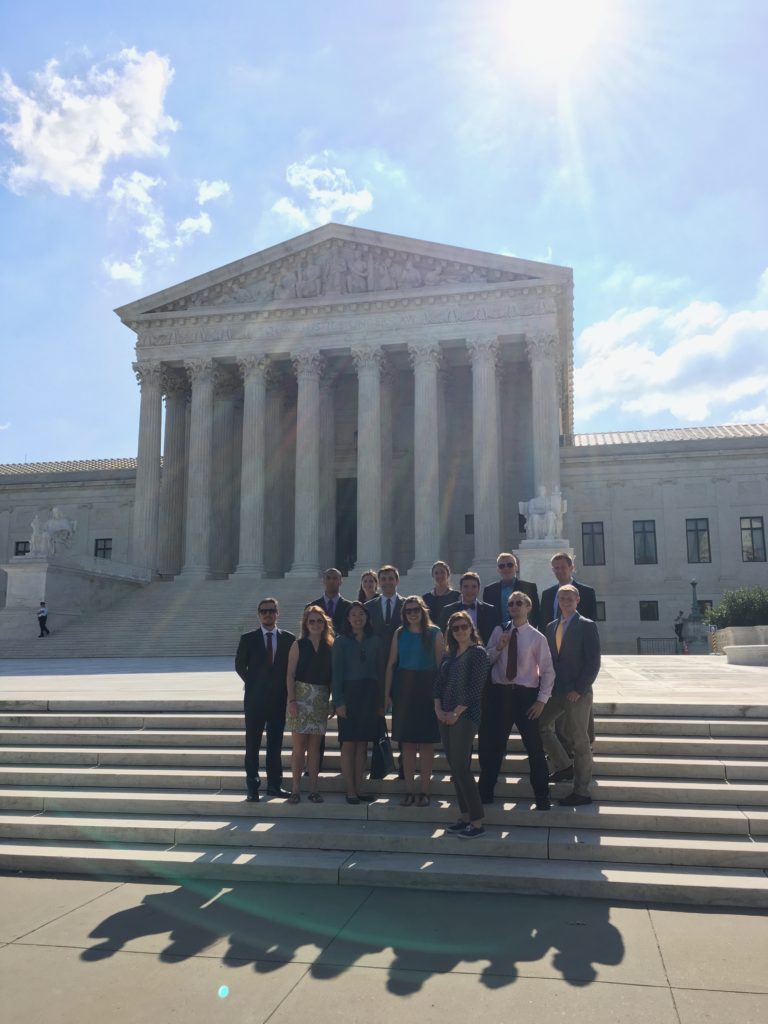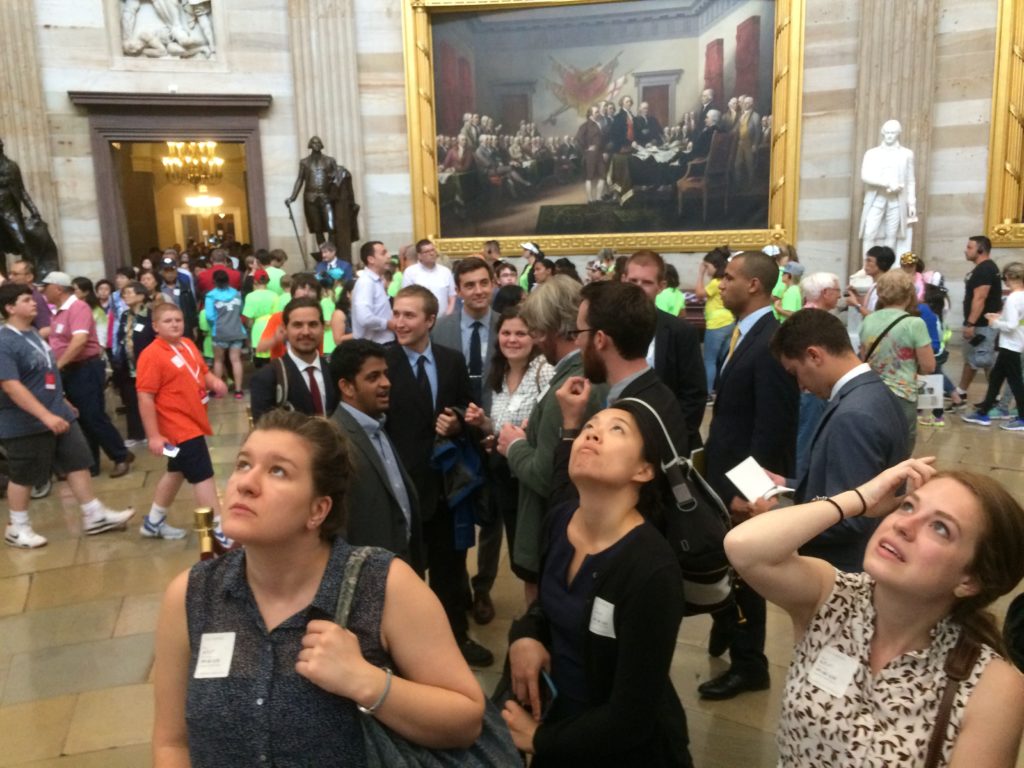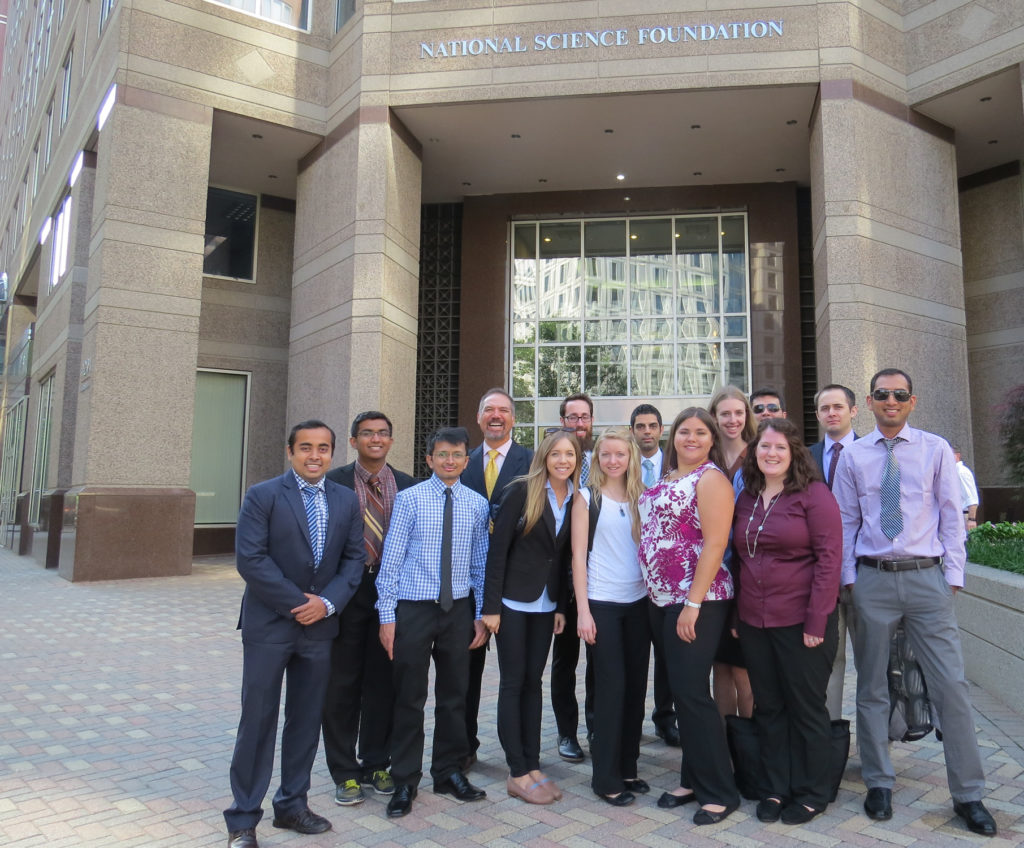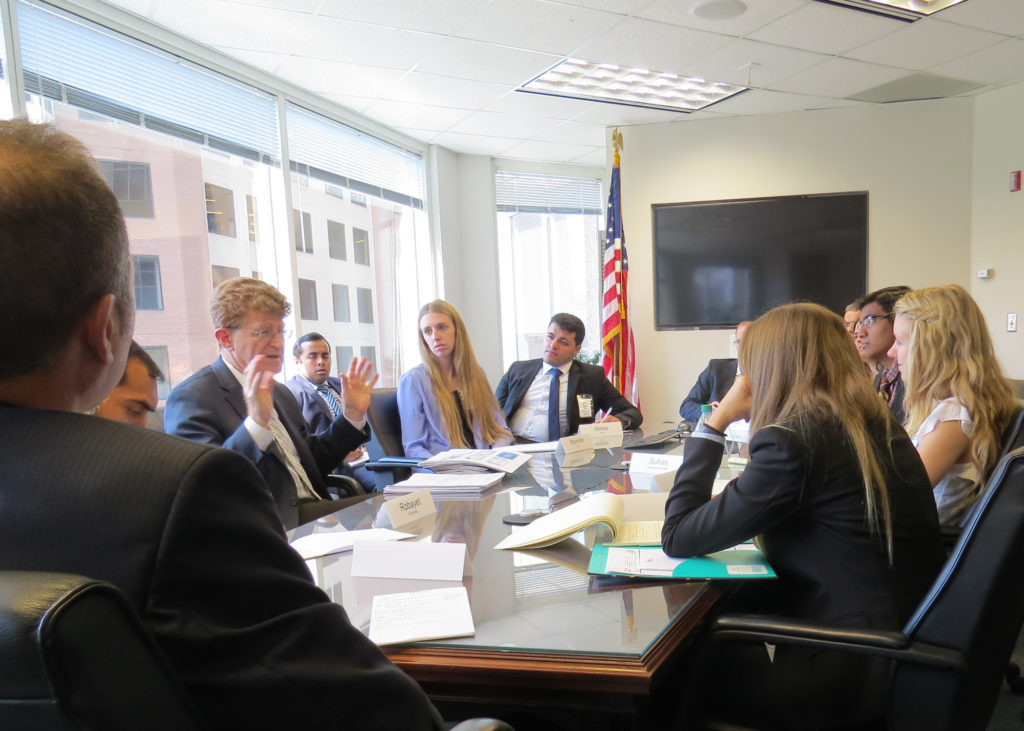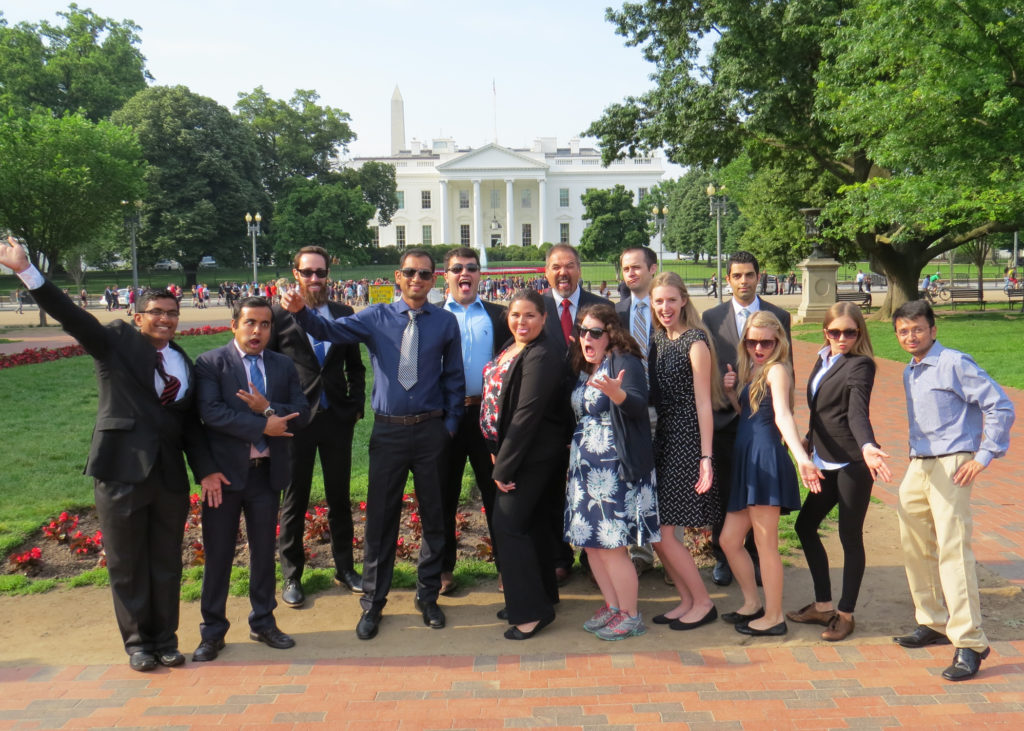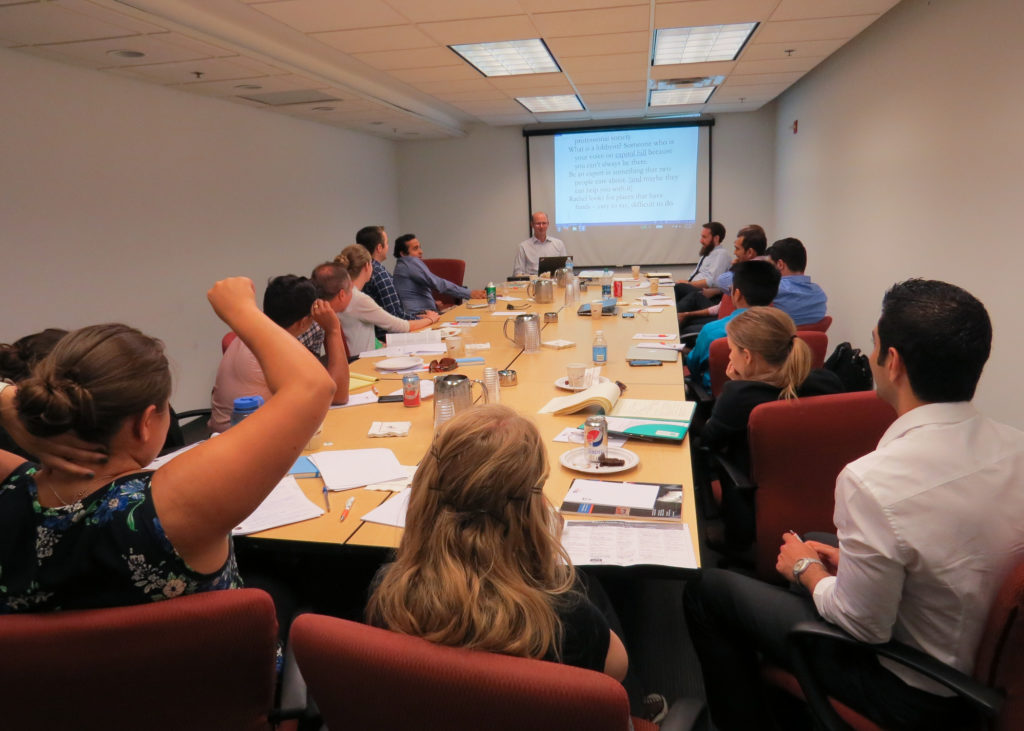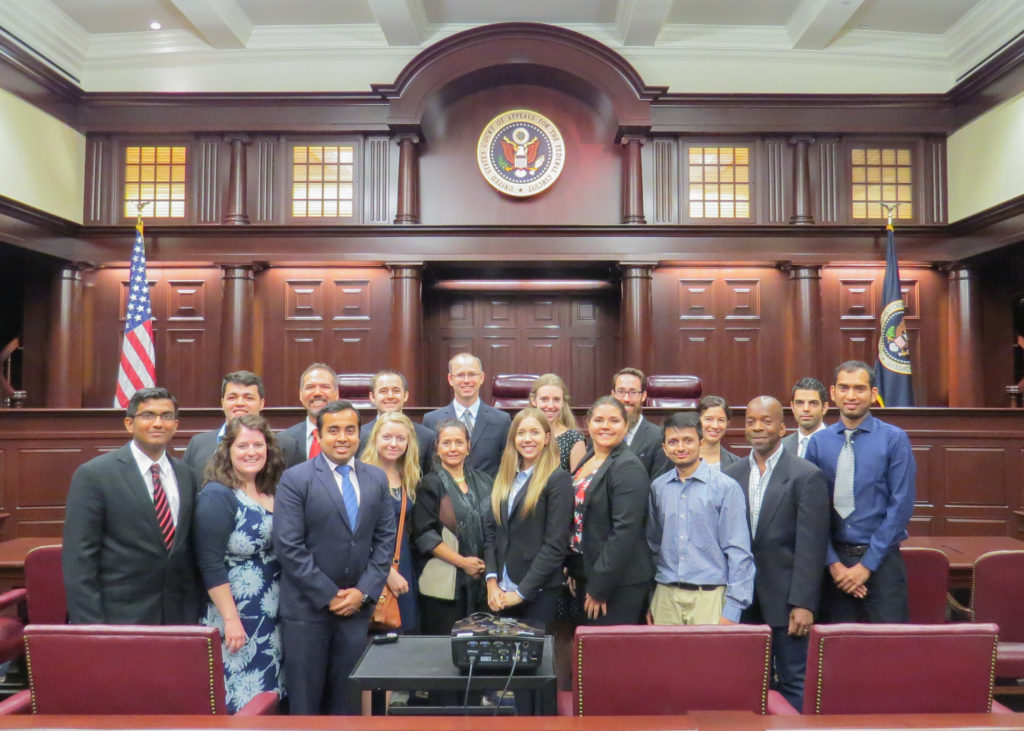Science Outside the Lab
What is it?
Science Outside the Lab explores the relationships among science, policy, and societal outcomes in a place where many important decisions about these things are made—Washington, DC. During the one-week workshop, participants will meet and interact with the people who fund, regulate, shape, critique, publicize, and study science, including congressional staffers, funding agency officers, lobbyists, regulators, journalists, academics, museum curators, and others.
Why?
With the intersections between science, politics, and society making headlines every day, it is more important than ever for scientists and engineers to know how the decisions that affect them are made. Washington, DC, where $150 billion of federal R&D funding and countless policy decisions originate, is the perfect setting to delve into the complicated world of science policy. Scholars who understand the goals and implications of publicly funded science will likely have an advantage when seeking jobs and funding. This program also will explore numerous careers in the science policy realm.
Who should attend?
Over the years we have run different programs for people of different backgrounds. Most recently we have been running programs for graduate students pursuing PhDs in the natural sciences and engineering as well as faculty and postdocs in those fields. Scientists and engineers who are interested in how the decisions about science funding, regulation, and policy are made will benefit from this program. Those interested in careers in science policy also will find this to be an excellent opportunity to learn about important fellowships and meet current science policy professionals.
What to expect?
Arizona State University hosts the program at its Washington Center and meetings take place in locations throughout the Washington, DC area, which allows students to experience many facets of the nation’s capital. This is not a one-week lecture series. It includes discussions, hands-on experiences, and on-location learning. It is designed not just to teach how decisions are made but to give the participants a chance to try their hands at them as well.
The primary component of the program is the discussions the students will have with people throughout the District of Columbia. All presenters are asked to limit their opening comments to fifteen minutes. This leaves plenty of time for conversation. This opportunity, of course, comes with a significant responsibility. The success of the course will rest on participants’ ability to ask probing questions and explore the subtler facets of policy. The goal is to expose participants to as many different viewpoints as possible and help them understand how the people and institutions in Washington, DC, both influence and learn from science.
Cost
NCI-SW and the NNCI Coordinating Office will cover program fees, housing, most meals, local transportation, and transportation to and from Washington, D.C. for participants chosen for the June 2025 graduate student/postdoc program.
NCI-SW and the NNCI Coordinating office will cover program fees and some meals for participants chosen for the May 2025 faculty program. Faculty participants will need to arrange their own transportation and housing.
NNCI SOtL 2025 Flyer and Information
In 2025 we will be offering three programs:
May 18-24 – A week-long program focused on energy and energy transitions for graduate students
May 28-30 – A three day intensive program for faculty in engineering and natural sciences
June 1-7 – A week-long program policy immersion program for graduate students and postdocs
How do I apply?
Applications for the May 28-30 faculty program and the June 1-7 graduate student/postdoc program will be accepted through February 17, 2025, at midnight MST.
Student application | Faculty Application
Questions?
Contact Jamey Wetmore at [email protected]
Contact CENTSS at [email protected].




